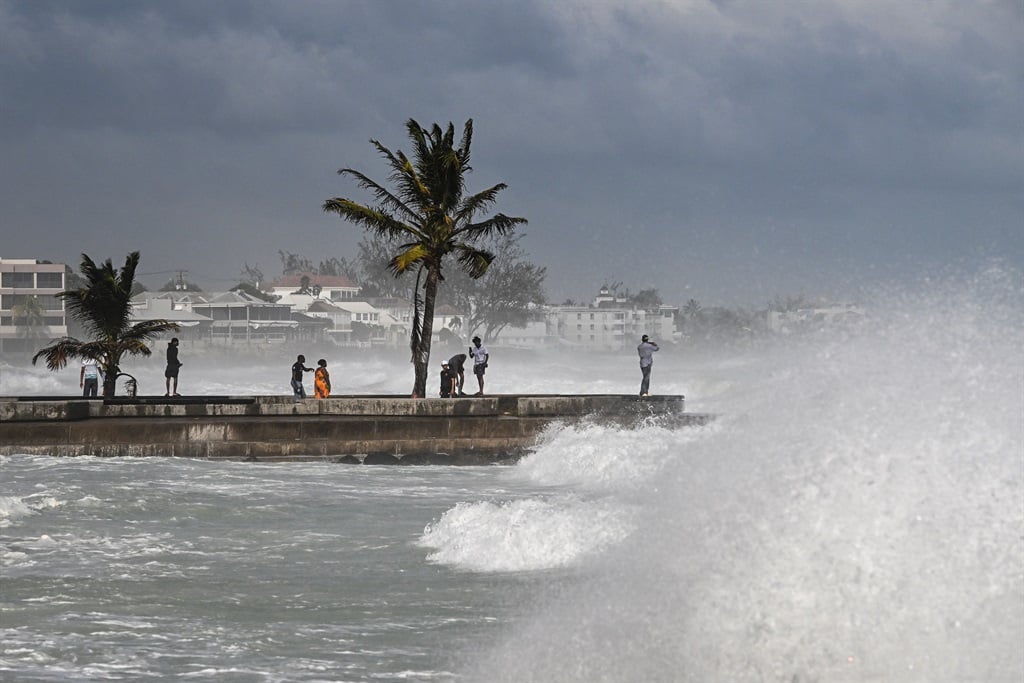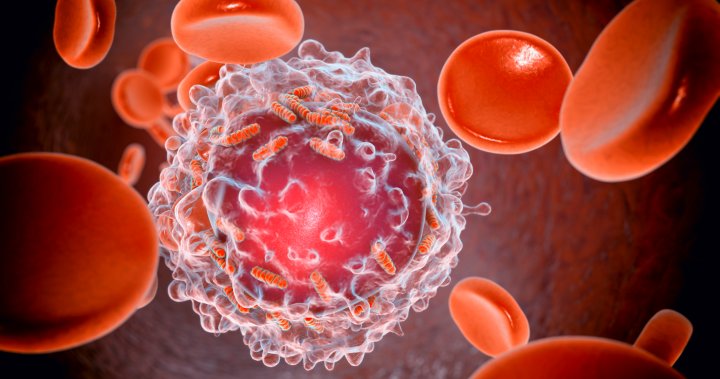People visit a pier during a high tide after Hurricane Beryl passed through Oistins near Bridgetown, Barbados, on 1 July 2024 (Chandan Khanna/AFP)
- Hurricane Beryl intensified into a Category 5 storm,
marking the earliest occurrence of such a strong hurricane in the Atlantic. - Hurricane Beryl caused devastation across several
Caribbean islands with heavy rains and winds exceeding 265 km/h. - The hurricane directly hit Grenada’s Carriacou Island and
posed life-threatening conditions on nearby islands.
Hurricane
Beryl has strengthened into a top-level category 5 storm after it swept across
several islands in the southeastern Caribbean, dumping heavy rain and
unleashing devastating winds.
The US
National Hurricane Center (NHC) said Beryl is now the earliest category 5 storm
in the Atlantic on record and has developed into a “potentially
catastrophic” hurricane.
The NHC
said in its latest update early on Tuesday that Beryl was “still
intensifying,” with recent data showing maximum sustained winds had
increased to almost 265 kilometers per hour.
Grenada’s
Carriacou Island took a direct hit from the storm’s “extremely dangerous
eyewall” early Monday, with sustained winds at upwards of 150 mph (240
kph), the NHC said.
Nearby
islands, including St. Vincent and the Grenadines, also experienced
“catastrophic winds and life-threatening storm surge,” it said.
“In
half an hour, Carriacou was flattened,” Grenada’s Prime Minister Dickon
Mitchell told a news conference.
“We
are not yet out of the woods,” Mitchell said, noting that while no deaths
had been reported so far, he could not say for sure that none had occurred.
Video
obtained by AFP from St. George’s in Grenada showed heavy downpours with trees
buffeted by gusts.
Mitchell
said later on social media the government was working to get relief supplies to
both Carriacou and the island of Petite Martinique on Tuesday.
“The
state of emergency is still in effect. Remain indoors,” he wrote on
Facebook.
Rare early
strong storm
Beryl
became the first hurricane of the 2024 Atlantic season on Saturday and quickly
gathered strength.
Experts say
that such a powerful storm forming this early in the Atlantic hurricane season
– which runs from early June to late November – is extremely rare.
It is the
first hurricane since NHC records began to reach the Category 4 level in June
and the earliest to reach Category 5 in July.
“Only
five major (Category 3+) hurricanes have been recorded in the Atlantic before
the first week of July,” hurricane expert Michael Lowry posted on social
media platform X.
Barbados
appeared to be spared the worst of the storm but was still hit with high winds
and pelting rain, although officials reported no injuries so far.
Barbados
seems to have “dodged a bullet,” Minister of Home Affairs and
Information Wilfred Abrahams said in an online video, but nonetheless
“gusts are still coming, the storm-force winds are still coming,” he
said.
Homes and
businesses were flooded in some areas, and fishing boats were damaged in
Bridgetown.
The storm
prompted the cancellation of classes on Monday in several of the islands, while
a meeting this week in Grenada of the Caribbean regional bloc CARICOM was
postponed.
Jamaica has
issued a hurricane warning ahead of the storm’s expected arrival on Wednesday,
with the NHC forecasting it would bring “life-threatening winds and storm
surge.”
A tropical
storm warning was also issued for the south coast of the Dominican Republic,
where authorities placed two provinces on red alert.
The NHC
warned the Cayman Islands and areas on the Yucatan Peninsula to monitor the
storm’s progress.
Extreme weather
A Category
3 or higher on the Saffir-Simpson scale is considered a major hurricane.
The US
National Oceanic and Atmospheric Administration said in late May that it
expects this year to be an “extraordinary” hurricane season, with up
to seven storms of Category 3 or higher.
The agency
cited warm Atlantic Ocean temperatures and conditions related to the weather
phenomenon La Nina in the Pacific for the expected increase in storms.
Climate
change has made extreme weather events, including hurricanes, more frequent and
more devastating in recent years.
#Hurricane #Beryl #pummels #Caribbean #strengthens #earliest #Category #storm #Atlantic













